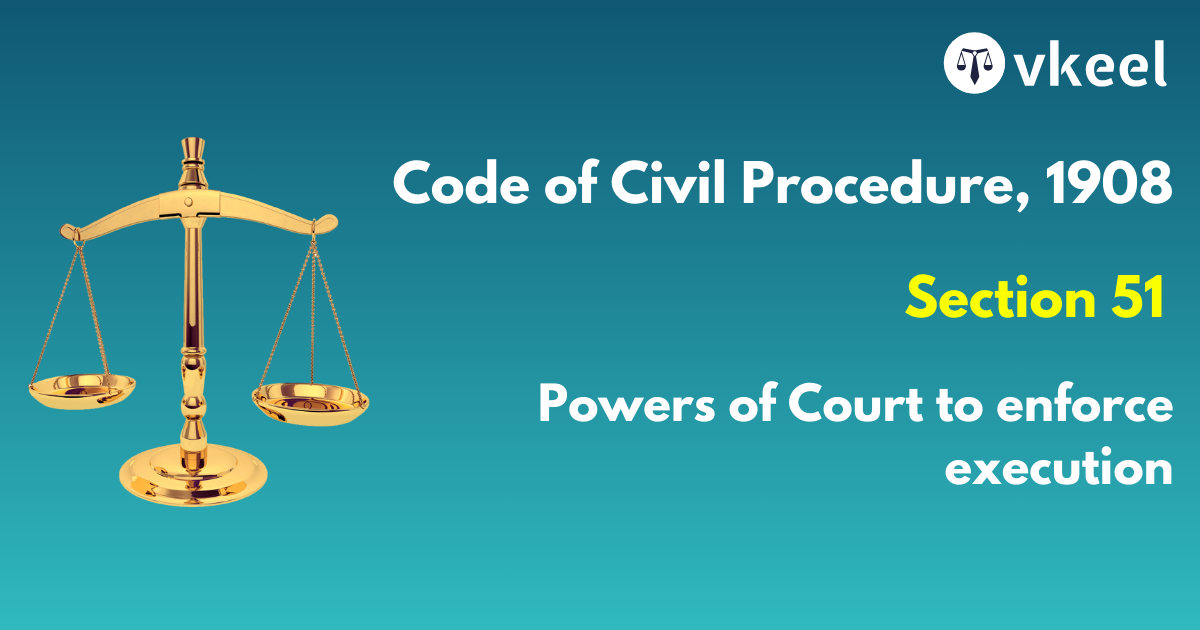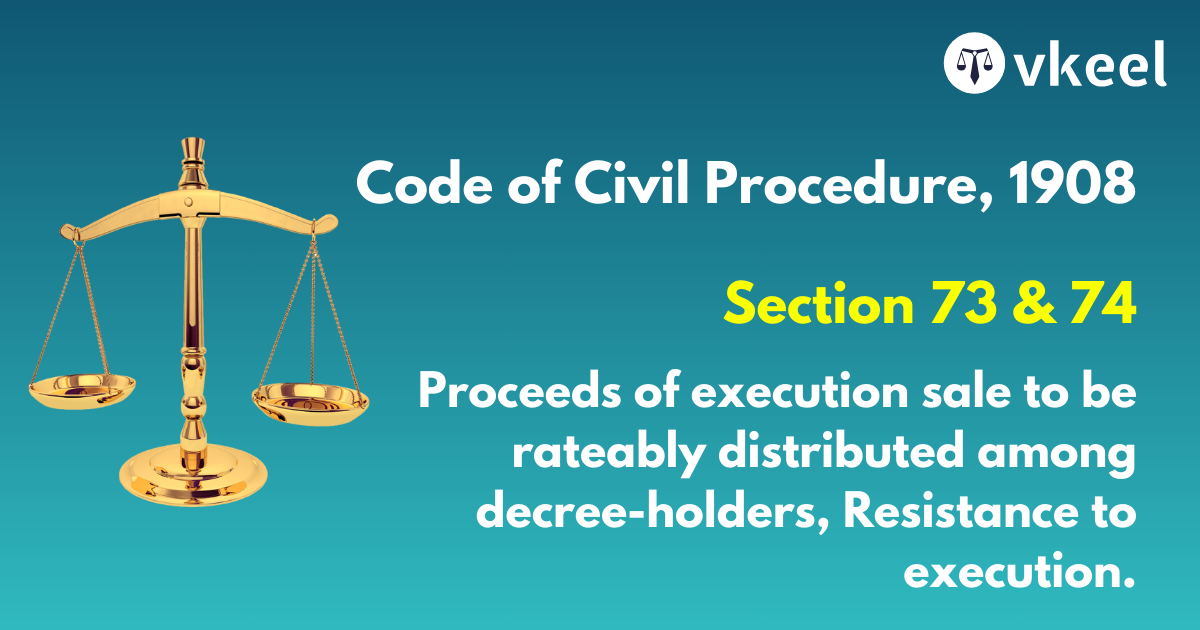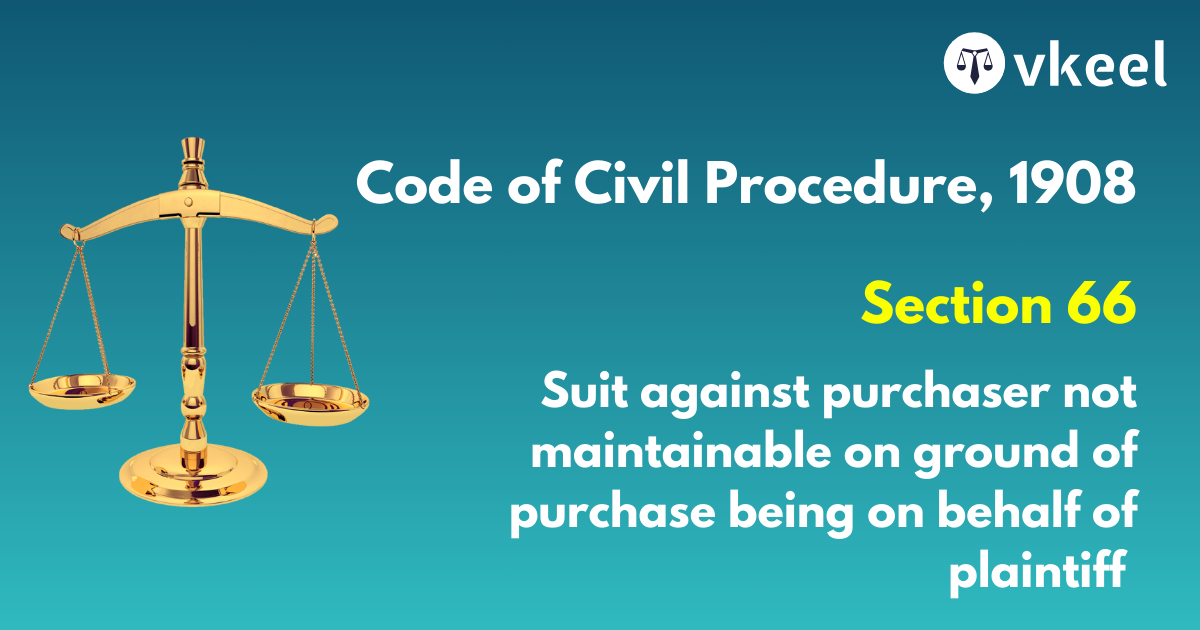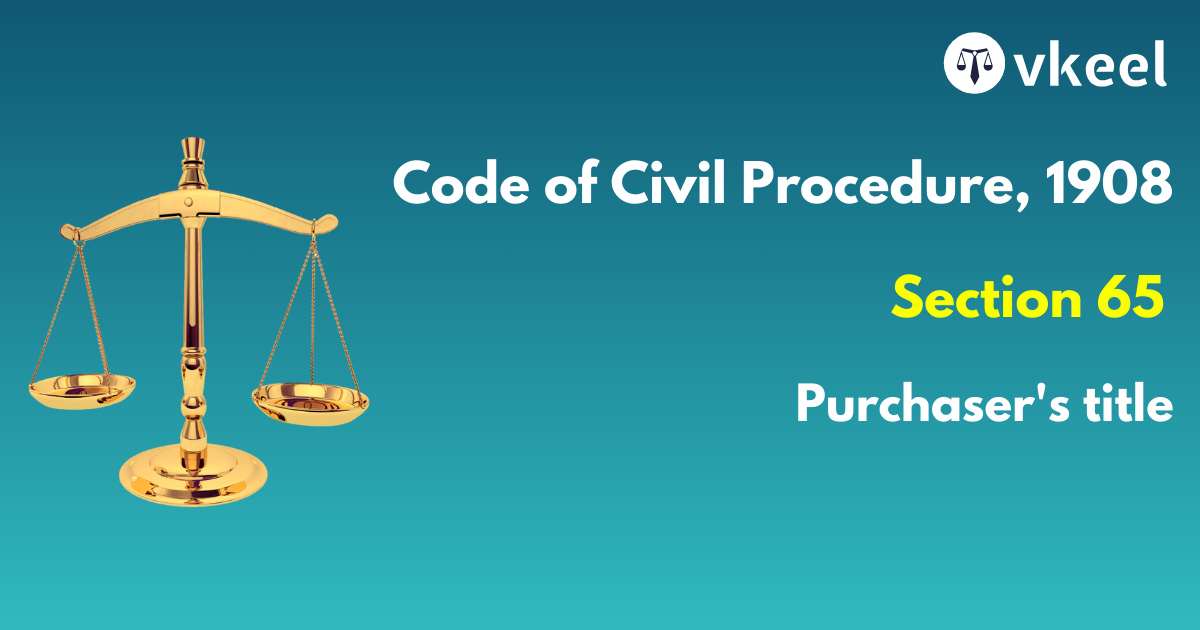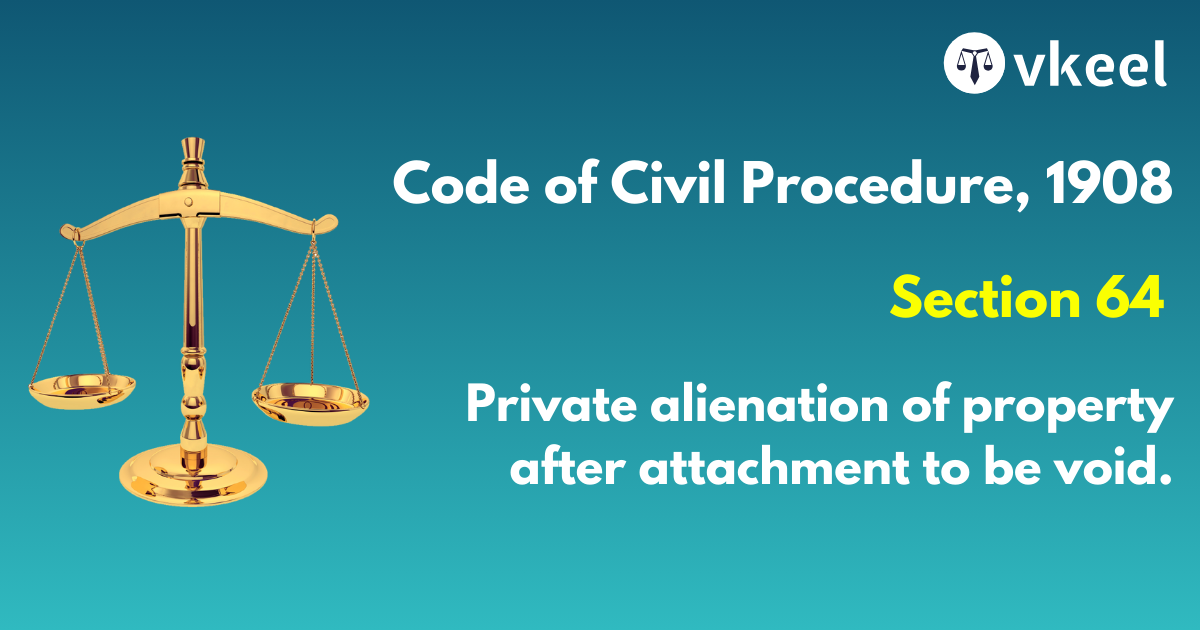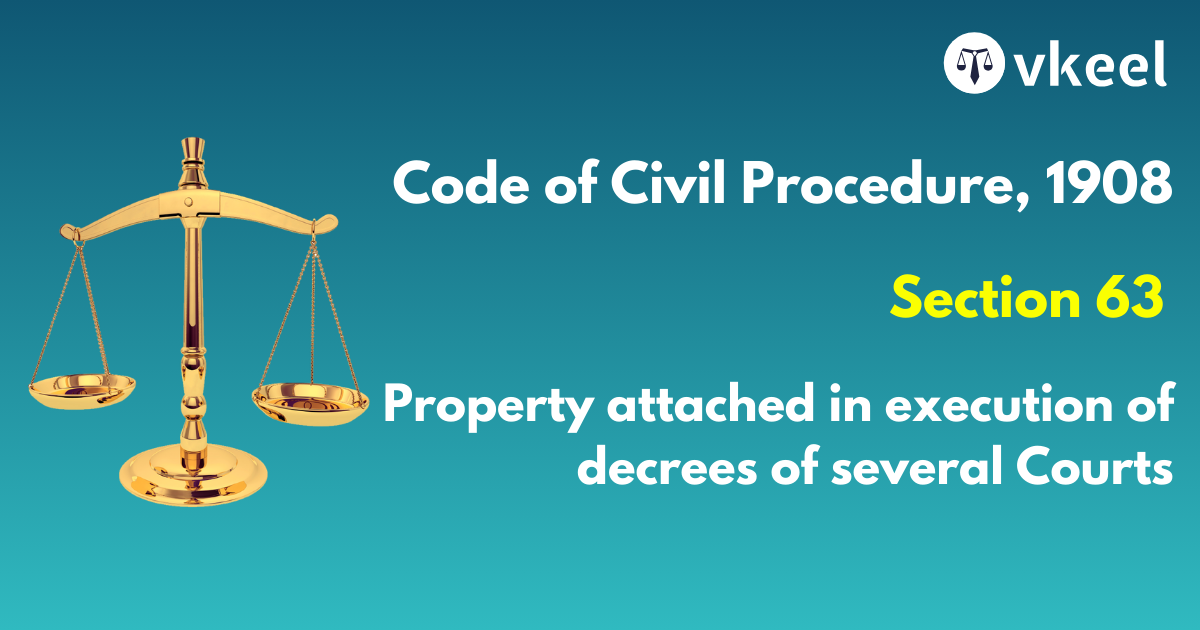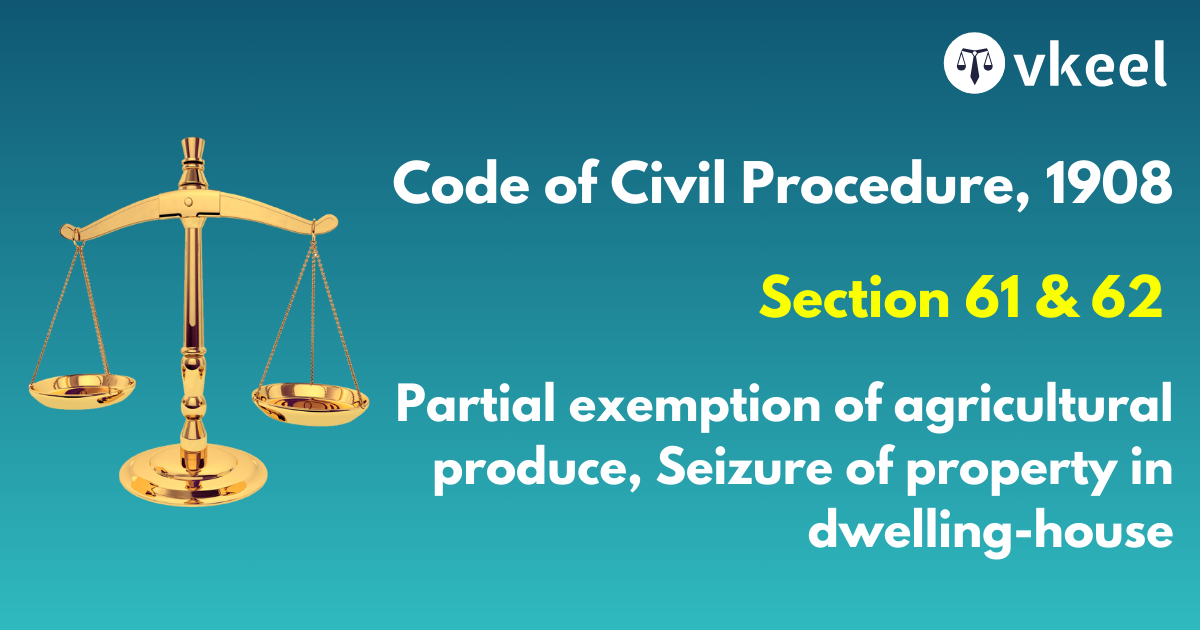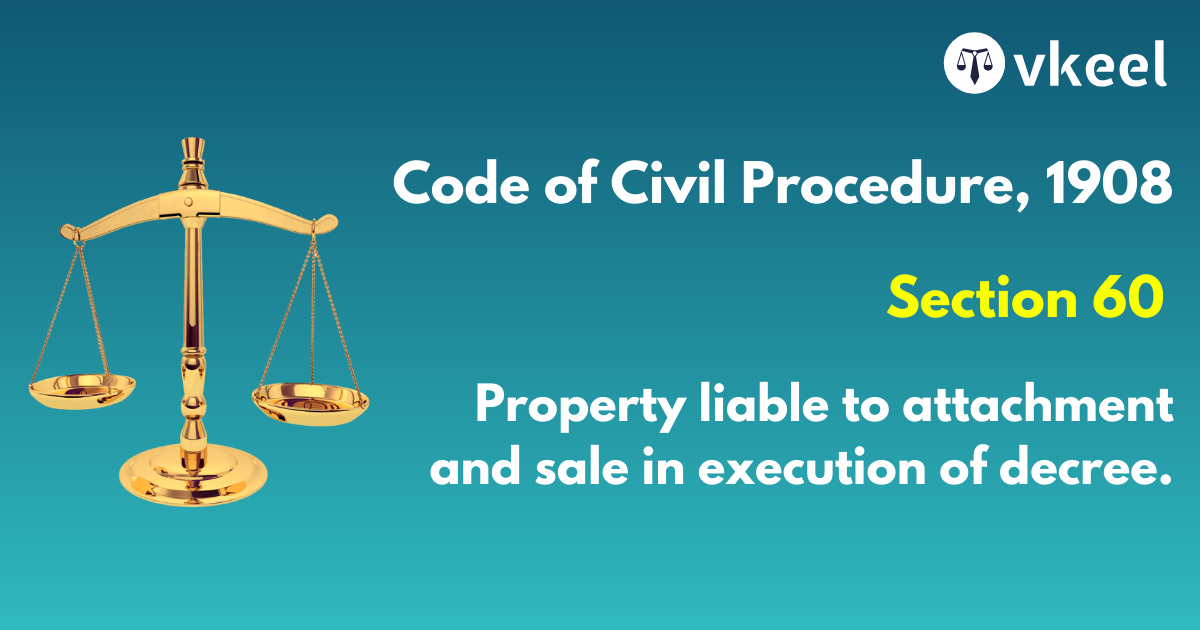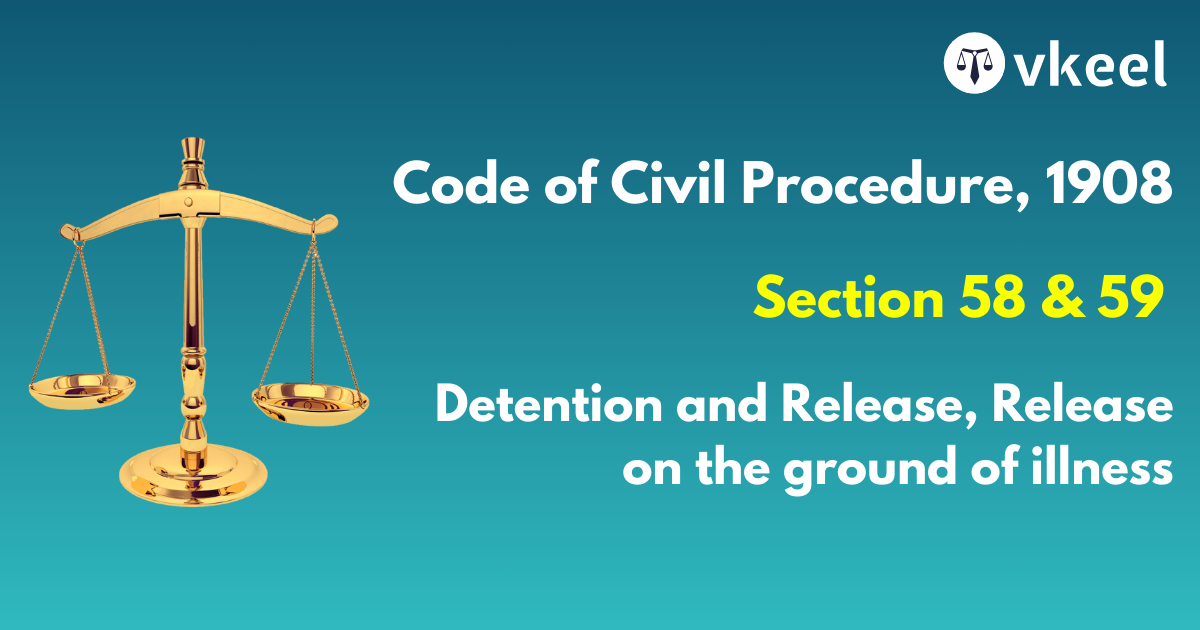Section 51 of the Code of Civil Procedure,1908
By Joy Puri
Introduction
The section 51 of the Code of Civil Procedure narrates about the powers of the respective court which has to execute the decree in the matter.
Section 51 of the Code of Civil Procedure,1908
Powers of Court to enforce execution-
Subject to such conditions and limitations as may be prescribed, the Court may, on the application of the decree-holder, order execution of the decree-
by delivery of any property specifically decreed;
by attachment and sale or by the sale without attachment of any property;
by arrest and detention in prison for such period not exceeding the period specified in section 58, where arrest and detention is permissible under that section;
by appointing a receiver; or
in such other manner as the nature of the relief granted may require;
Provided that, where the decree is for the payment of money, execution by detention in prison shall not be ordered unless, after giving the judgment-debtor an opportunity of showing cause why he should not be committed to prison, the Court, for reasons recorded in writing, is satisfied-
that the judgment-debtor, with the object or effect of obstructing or delaying the execution of the decree
is likely to abscond or leave the local limits of the jurisdiction of the Court, or
has, after the institution of the suit in which the decree was passed, dishonestly transferred, concealed, or removed any part of his property, or committed any other act of bad faith in relation to his property, or
that the judgment-debtor has, or has had since the date of the decree, the means to pay the amount of the decree or some substantial part thereof and refuses or neglects or has refused or neglected to pay the same, or
that the decree is for a sum for which the judgment-debtor was bound in a fiduciary capacity to account.
Explanation – In the calculation of the means of the judgment-debtor for the purposes of clause (b), there shall be left out of account any property which, by or under any law or custom having the force of law for the time being in force, is exempt from attachment in execution of the decree.
STATE AMENDMENTS
Uttar Pradesh-
In section 51 of the Code Clause (bb) shall be inserted after clause (b).
“(bb) by transfer other than sale by attachment or without attachment of any property”
Landmark Case Laws
Kamini Kapoor Vs Punjab National Bank, 2017
Under section 51(a) the court may on an application by the decree holder, order execution of the decree by inter alia ordering delivery of any property specifically decreed. The usage of the word “specifically decreed” tends to suggest that if the decree is for delivery of an immovable property, which must be specific, the court will execute it by ensuring its delivery to the decree holder.
Ram Lochan Vs Mahadeo, 1970
Decree-holder has no vested right in all the modes of execution prescribed by section 51. The modes prescribed by section 51 are subject to other provisions in the Code such as section 42 and O XXI rule 82.
PRKS Works Vs Land Reform Commr, 1969
The Collector recovering tax arrears is not restricted to proceed first by attachment and sale of movables or by arrest and detention and if he cannot recover then and then only to have recourse to the immovable property
Uttrakhand Rural Road Development Agency Vs District Magistrate, 2016
Arbitral award can be executed as decree of Civil Court by detention of JD in civil prison, by attachment, sale of his property. Executing Court issued recovery certificate for recovery of decretal amount as arrears of land revenue, held not proper.
Namdeo Vs Gobardhan, 1939
Delivery of property (O XXI rules 95, 96); Attachment and Sale (sections 60-67; O XXI rules 30, 41-94); Sale without attachment (Mortgage decree). Rule 30 or rule 64 of O XXI does not negative the power expressly given by section 51 to sell without attachment and such a sale is not a nullity.
Subramania Vs Ponnuswami, 1957
Where a decree-holder presses for arrest, the court cannot except as provided in the proviso to section 51, compel the decree-holder to proceed against the debtor’s property. It has to follow the procedure under O XXI rule 40 and if it is satisfied on the evidence that the case falls within any of the clauses in provisos (a) to (c), it has to record reasons that the debtor should be sent to prison. If on the other hand, the decree-holder fails to discharge his burden of proving the circumstances specified in the section, the court is bound to reject the application.
Adhish Eh Singha Vs Hindustan Gas & Industries Ltd, 1994
In cases where appointment of a Receiver is justly called for in the interest of justice and convenience of the parties, and where the appointment of Receiver would not cause any undue prejudice to the parties, it is open to the executing court to appoint a receiver straightway for execution of a decree for possession of immovable property, even in the first instance, without appointing the bailiff or other officer for execution.
Conclusion
It also specifies that arrest and detention can only be ordered if the debtor willfully avoids payment despite having the means to do so.
Section 51 of the Code of Civil Procedure empowers the court to enforce a decree through various methods, such as delivering specific property, attaching and selling property, arresting and detaining the judgment-debtor for non-payment of money, or appointing a receiver.
Disclaimer:
The information provided in the article is for general informational purposes only, and is not intended to constitute legal advice or to be relied upon as a substitute for legal advice. Furthermore, any information contained in the article is not guaranteed to be current, complete or accurate. If you require legal advice or representation, you should contact an attorney or law firm directly. We are not responsible for any damages resulting from any reliance on the content of this website.

